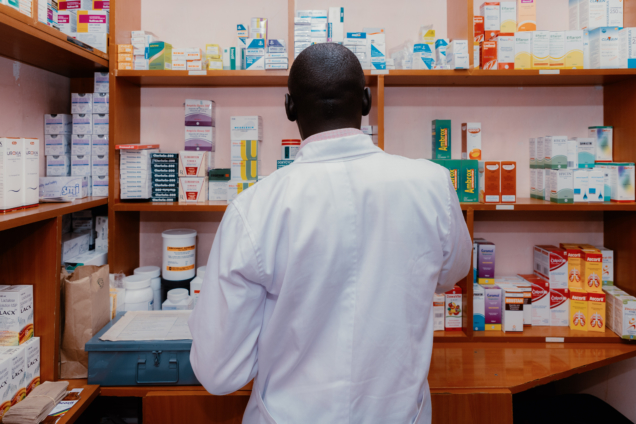The National AIDS/STIs Control Programme (NACP) has called for exceptional tax waivers on all health commodities and medicines provided by development partners for public health intervention.
That, it said, was to enable the country to eliminate and achieve epidemic control for the conditions for which those medicines and commodities had been targeted. The NACP enumerated the commodities which included medicines for HIV, malaria, tuberculosis and all diseases that had been targeted by the country for programmatic intervention.
The Manager of the NACP, Dr Stephen Ayisi Addo, who made the call in an interview, explained that taxes on health commodities and medications for programmatic interventions in the country caused delays in clearing them from the ports and reduced their shelf life by the time they were cleared.
He further explained that the situation could deprive patients of the appropriate service, affect adherence to medications and prescriptions, create shortages and stock-out, and eventually erode the gains made in those conditions.
“We want to eliminate malaria, we want to end HIV and TB epidemic. We cannot achieve epidemic control if we don’t address these challenges and bottlenecks. We cannot achieve malaria elimination if these commodities can’t be cleared timely and we will have a rebound and a reversal of the progress that we have made so far”.
“For HIV, when there are delays in clearing the medications and commodities from the port, it means patients will not get their medications at the right time to use; the test kits will not be available to be used at the right time which will affect indicators, it will affect availability of medications – there will be stock-out in the facilities,” Dr Ayisi Addo pointed out.
He added that as a result, there would be no viral suppression and the risk of transmission in the general population would increase, preventing the achievement of epidemic control.
He said to achieve epidemic control, there should be low transmission or no transmission then we would know that the whole country was free off HIV.
Global Fund
The Global Fund to fight AIDS, TB and Malaria, as part of its support to the country procures huge quantity of medication and different commodities to support the national response.
For HIV, the Global Fund provides a huge quantity of antiretroviral medications, HIV test kits and other related commodities for the national response againsts HIV. When it comes to malaria, Global fund provides insecticide treated nets and other related commodities for malaria and for TB, it provides a lot of commodities.
Apart from the Global Fund, other agencies and partners also provide support. UNFPA provides condoms; the West Africa Health Organisation also procures condoms for the country, the United States of America provides family planning commodities, while GAVI provides vaccines.
Dr Ayisi Addo said the items were provided within the co-financing obligations with the country and grant agreement. He said although Global Fund products were not supposed to be taxed at the ports, the Ghana Revenue Authority (GRA) in adhering to its policies and principles taxed them.
He said the natural and the best thing was to get a waiver from the GRA. Those conditions led to an accumulation of containers of medications and health commodities that needed to be cleared from the ports a few months ago, the NACP manager explained.
Solution
To find a permanent solution to the problem, there would be a high-level dialogue where all the stakeholders, including officials from the GRA and the Ministry of Finance, would be around for a thorough discussion to bring the matter to a conclusion, Dr Ayisi Addo said.
“From the dialogue, we will look at how to overcome these bottlenecks — the waiver issues, procurement issues, supply chain, taxes and clearing — and find a common ground so that clearing will be seamless,” the NACP manager stated.
“Should the taxes persist, the dialogue would look at other ways of getting money to cater for it,” he said. Dr Ayisi Addo said the dialogue also formed part of activities marking 20 years of ART, which had been a life-saving commodity for People Living with HIV.


